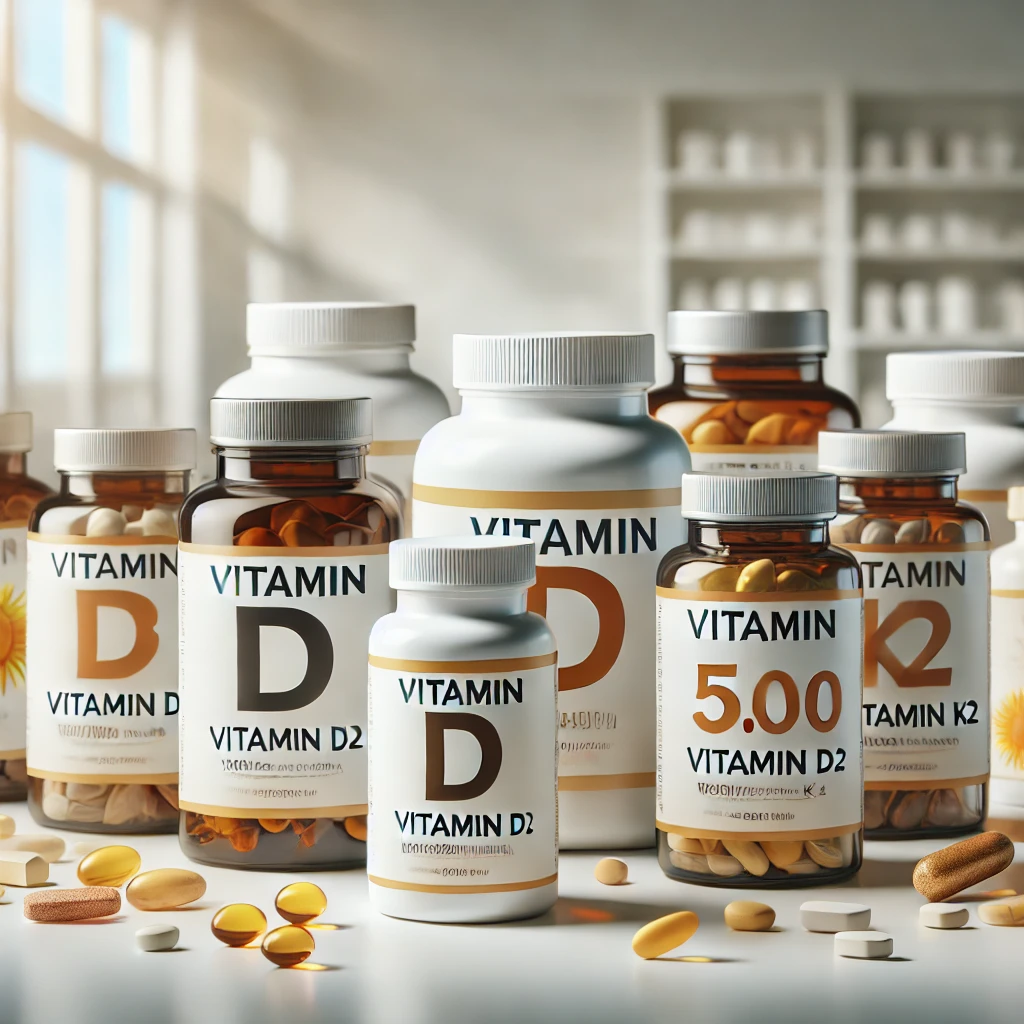Vitamin D, often called the “sunshine vitamin,” is much more than a nutrient for strong bones. Emerging research reveals its profound impact on immune function and gut health, particularly in regulating the body’s defense against autoimmune disorders. A deficiency in vitamin D—or “vit deficiency”—has been linked to an increased risk of autoimmune diseases, where the immune system mistakenly attacks the body’s cells. But why does a lack of vitamin D trigger such responses? In this article, we’ll dive deep into the science behind vitamin D deficiency, its effects on gut health and immune regulation, and its connection to autoimmune conditions.
Vitamin D’s Role in Immune Health
Vitamin D is unique among vitamins because the body can synthesize it when exposed to sunlight. This nutrient works as a potent modulator for the immune system, influencing key cells and processes that defend the body from infections and help prevent the immune system from attacking itself.
1. How Vitamin D Regulates Immunity
Vitamin D supports immune cells—such as T cells and macrophages—by promoting balanced immune responses. T cells are the immune system’s “soldiers,” trained to detect and fight off harmful invaders without attacking the body’s own cells. Vitamin D is essential in training T cells within the thymus gland, allowing them to recognize the body’s cells and preventing autoimmunity.
- The Thymus Connection: The thymus gland, where T cells mature, relies on vitamin D for optimal function. Recent studies suggest that a lack of vitamin D may prematurely age the thymus, affecting its ability to regulate immune responses and leading to a higher risk of autoimmune responses.
2. The Inflammation Link
Vitamin D helps control inflammation by reducing the production of pro-inflammatory cytokines. Chronic inflammation is a known trigger for autoimmune diseases, as prolonged inflammation can cause the immune system to mistakenly attack healthy tissues. Vitamin D deficiency disrupts this balance, often resulting in an increased inflammatory response and a greater likelihood of developing autoimmune conditions.

The Link Between Vitamin D Deficiency and Autoimmune Conditions
Autoimmune disorders occur when the immune system attacks the body’s cells, mistaking them for harmful pathogens. The exact cause of autoimmunity remains complex, but research has increasingly shown that vitamin D deficiency can exacerbate or even trigger these disorders.
3. Autoimmune Disorders and Vitamin D: A Look at the Research
Numerous studies have demonstrated the link between low vitamin D levels and increased susceptibility to autoimmune diseases such as multiple sclerosis, type 1 diabetes, rheumatoid arthritis, and lupus.
- Notable Studies: One study published in BMJ indicated that adults who took vitamin D supplements had a 22% lower risk of developing autoimmune diseases than those who took a placebo. This highlights the preventive potential of maintaining adequate vitamin D levels.
4. Gut Health as the Gateway to Immune Health
The gut is a crucial component of immune regulation, and its connection to vitamin D and autoimmune conditions is particularly noteworthy. A healthy gut barrier is essential in preventing harmful pathogens from entering the bloodstream and triggering immune responses. Vitamin D plays an active role in gut health by aiding the production of antimicrobial peptides and promoting a balanced microbiome—two factors vital in preventing inflammation and autoimmune responses.
The Impact of Vitamin D Deficiency on Gut Health and the Immune System
Vitamin D supports a balanced gut microbiome—a collection of beneficial bacteria that directly impact immune responses. Deficiencies in vitamin D can disrupt the gut’s bacterial balance, leading to weakened immunity and a higher risk of autoimmune triggers.
5. Understanding “Leaky Gut” and Its Role in Autoimmunity
Vitamin D deficiency is linked to “leaky gut” syndrome, a condition where the intestinal lining becomes more permeable, allowing harmful bacteria and toxins to “leak” into the bloodstream. This condition prompts the immune system to respond, leading to chronic inflammation and increasing the likelihood of autoimmune conditions.
- Vitamin D and Tight Junctions: Tight junctions are protein complexes in the gut that help maintain gut integrity. Vitamin D supports these junctions, preventing harmful substances from entering the bloodstream. When vitamin D levels are low, these junctions weaken, leading to increased permeability and inflammation.
6. How Vitamin D Influences the Gut Microbiome
Vitamin D not only supports gut integrity but also plays a role in regulating the microbiome. It stimulates the production of antimicrobial peptides, which protect against harmful bacteria and infections. A balanced microbiome reduces inflammation and protects against autoimmune triggers by preventing the overgrowth of harmful bacteria.
- Vitamin D and Dysbiosis: Dysbiosis, or microbial imbalance, is linked to autoimmune conditions. By promoting a balanced microbiome, vitamin D prevents dysbiosis, reducing inflammation and helping to regulate the immune system effectively.

Recognizing Symptoms of Vitamin D Deficiency and the Link to Autoimmunity
Identifying a vitamin D deficiency early can be crucial in preventing autoimmune issues. Deficiency symptoms can often be subtle, yet they play a significant role in how the immune system operates.
7. Signs and Symptoms of Vitamin D Deficiency
Common symptoms of vitamin D deficiency include:
- Chronic Fatigue and Weakness: Persistent fatigue and muscle weakness are common in people with low vitamin D levels, as the vitamin is vital for energy production.
- Frequent Infections: Vitamin D supports immune cell production. Low levels make individuals more susceptible to infections.
- Bone and Back Pain: Vitamin D is essential for calcium absorption, and low levels can result in bone pain and osteoporosis.
- Mood Changes and Depression: Vitamin D impacts neurotransmitter production, particularly serotonin. Deficiencies are linked to depression and mood disorders.
8. How to Diagnose and Address Vitamin D Deficiency
Blood tests can determine vitamin D levels, and addressing a deficiency is essential for those prone to autoimmune conditions. Many healthcare providers recommend supplements or dietary changes to raise vitamin D levels and enhance immune health.
Boosting Vitamin D Levels for Immune Health and Autoimmunity Prevention
Achieving adequate vitamin D levels is crucial for immune support and reducing the risk of autoimmune conditions.
9. The Role of Sunlight in Vitamin D Production
Sunlight exposure is one of the most natural ways to boost vitamin D levels. However, depending on geographical location, climate, and skin type, sunlight alone may not be enough for optimal vitamin D levels.
- Safe Sun Exposure: About 15-20 minutes of direct sunlight exposure per day on the skin is typically sufficient to maintain vitamin D levels. For individuals in areas with limited sunlight, supplements can be a viable alternative.
10. Dietary Sources of Vitamin D
Certain foods contain vitamin D, including:
- Fatty Fish: Salmon, mackerel, and sardines are excellent sources of vitamin D.
- Fortified Foods: Many dairy products, orange juice, and cereals are fortified with vitamin D.
- Egg Yolks and Mushrooms: These are natural sources of vitamin D, though in smaller quantities.
11. Supplementation: A Reliable Source for Vitamin D
For those in low-sunlight areas, vitamin D supplements can help maintain adequate levels. Consult a healthcare provider for the correct dosage, as it varies by age, weight, and health status. Ensuring proper vitamin D levels is particularly important for individuals at risk of autoimmune conditions.

The Combined Impact of Vitamin D with Other Nutrients
Vitamin D’s effects on immune health are enhanced when combined with other nutrients like vitamin K2 and magnesium, which improve vitamin D absorption and efficacy.
12. Vitamin K2 and Magnesium: Aiding Vitamin D Absorption
Vitamin K2 works synergistically with vitamin D to ensure calcium is directed to the bones rather than soft tissues. Magnesium, on the other hand, is required for activating vitamin D in the body. Together, these nutrients improve immune function and help maintain a balanced immune response, crucial for autoimmune prevention.
13. Probiotics, Gut Health, and Vitamin D
In addition to vitamin D, probiotics play a vital role in maintaining a healthy gut microbiome. Probiotics support immune health by helping to reduce inflammation and preventing the overgrowth of harmful bacteria. Together with vitamin D, probiotics contribute to better gut health, which is essential for preventing autoimmune conditions.

Advanced Prevention Strategies for Autoimmune Health
Understanding the connections between vitamin D, gut health, and immune regulation provides valuable insights into preventing autoimmune conditions.
14. Immune Modulation and Autoimmune Disease Prevention
Vitamin D is an immune-modulating agent, meaning it helps the immune system operate without overreacting to perceived threats. This function is crucial in autoimmune disease prevention, as it prevents the immune system from mistakenly attacking the body.
15. Lifestyle Adjustments to Support Immune Health
In addition to vitamin D supplementation, other lifestyle factors play a role in reducing autoimmune risks:
- Balanced Diet: Consuming a diet rich in antioxidants, omega-3 fatty acids, and probiotics supports immune and gut health.
- Regular Physical Activity: Exercise improves immune function, lowers inflammation, and supports bone health, which can be impacted by vitamin D deficiency.
- Stress Management: Chronic stress can weaken the immune system. Practices like meditation and mindfulness can help regulate stress hormones and reduce the risk of autoimmune triggers.
Comprehensive Lifestyle Guide to Manage Vitamin D and Autoimmunity
16. Strategies for Ensuring Adequate Vitamin D Throughout the Year
To maintain optimal vitamin D levels year-round:
- Routine Testing: Regular blood tests can monitor vitamin D levels, especially in individuals at risk of deficiency.
- Winter Preparation: Consider a higher dose of vitamin D supplements during the winter months when sunlight exposure is limited.
- Consistent Sun Exposure: Aim for daily outdoor time, especially in summer, to naturally boost vitamin D levels.
17. Combining Diet and Supplementation for a Holistic Approach
While supplements can boost vitamin D levels, incorporating vitamin-rich foods and a healthy diet can enhance overall immune health and support gut integrity.

Why Vitamin D is Essential for Autoimmune Health
Vitamin D is not just another nutrient; it is a foundational component of immune regulation and gut health, with a crucial role in preventing autoimmune conditions. From supporting immune cell development in the thymus to promoting gut health and balancing the microbiome, vitamin D’s impact on health is profound.
Visit our other website: master3dp.com












